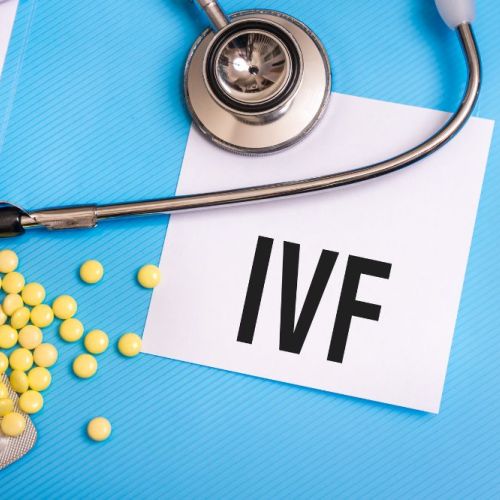Endocrine Disruptors / BPA: What You Need to Know

You may have heard the recent news that fertility rates throughout the United States — in both urban and rural areas and across all races — have plummeted to historic lows following three decades of long and steady decline.
While the dwindling national fertility rate is generally blamed on the fact that American women are starting their families later and having fewer babies than in the past, experts agree that social, economic, and cultural shifts aren’t the only contributing factors. Many scientists and fertility specialists surmise that omnipresent environmental factors, or routine exposure to toxic or disruptive chemicals, may also be at play.
Some of the most pervasive toxic substances are endocrine disruptors, which are chemicals capable of mimicking hormone activity or significantly altering hormone production and metabolism. Research shows that these hormone-disrupting chemicals can affect sperm count and quality, menstrual cycle regularity, egg maturation, and normal ovulation, among other things.
If you and your partner are struggling to conceive, here’s what you should know about endocrine disruptors — where they lurk, how they can affect your fertility, and what you can do to limit your exposure.
What are endocrine disruptors?
Endocrine disruptors are chemicals that interfere with your endocrine system, or the network of glands and hormones that drive development, regulate metabolism, facilitate brain function, and play a starring role in fertility and reproduction.
Endocrine disruptors can influence the way your body makes or controls your reproductive hormones as well as their receptors. Chemicals that act as anti-estrogens or anti-androgens can bind to receptors within a cell to prevent the hormones themselves from binding, stopping the transmission of essential signals.
Endocrine disruptors are also capable of mimicking naturally occurring estrogens, androgens, and thyroid hormones, leading to reproductive hormonal imbalance and overstimulation.
A variety of substances, most of which are synthetic, are known to affect reproductive hormones, including dioxin and dioxin-like compounds, phthalates, perfluorinated chemicals (PFCs), and plasticizers like bisphenol-A (BPA). Phytoestrogens, which are found in soy plants and soy products, are naturally occurring endocrine disruptors.
How do endocrine disruptors affect fertility?
Because endocrine disruptors have only recently come to the attention of scientists and health experts, their toxicological effects aren’t yet fully understood. And even though much of what is known about their impact on fertility and reproduction is derived from animal studies, early human studies have resulted in consistent findings.
When it comes to fertility and reproductive health, endocrine disruptors have been linked to an increased likelihood of polycystic ovary syndrome (PCOS), endometriosis, hypothyroidism, and reduced sperm quality and quantity. They’re also associated with an increased risk of preterm birth and miscarriage.
Dioxins and dioxin-like compounds can cause shorter menstrual cycles and poor sperm vitality. Phthalates are associated with reduced testosterone levels, low sperm count, and decreased sperm mobility. PFCs have been linked to thyroid disease as well as decreased fertility in men and women alike. At high concentrations, plasticizers like BPA can interfere with egg production, maturation, and fertilization.
What can I do to minimize my exposure?
Although scientists are still working to understand how endocrine disruptors are accumulated and excreted, they do know that significant levels of these compounds can be detected in a vast majority of people today.
Although tests that measure the presence of the metabolites made by endocrine disruptors can give you an idea of your overall exposure to these insidious chemicals, detoxification treatment protocols aren’t yet well-defined.
What experts do know, however, is that certain endocrine disruptors tend to accumulate in body fat. In such cases, simply losing a few extra pounds may be enough to decrease chemical concentration and restore optimal fertility.
In most cases, the best way to protect your fertility from the harmful effects of endocrine disruptors is by taking steps to minimize your exposure to them in the first place.
The first step in avoiding these ubiquitous chemicals is knowing that they can be found in a wide range of everyday products, including commonly used pesticides and herbicides, plastic bottles, vinyl shower curtains, metal food cans, nonstick cookware, detergents, and coatings used on fabrics, furniture, and carpeting. They’re also found in many personal care products, including shampoo and cosmetics.
To reduce your exposure to endocrine-disrupting chemicals, you can:
Wash your hands often
Frequent handwashing helps wash a substantial amount of chemical residue down the drain. Just be sure to avoid antibacterial and fragranced soaps, which are known endocrine disruptors.
Keep your house clean
Flame retardants and other industrial coatings can escape from fabrics, furniture, carpeting, and electronics and accumulate in household dust. You can minimize these free-floating, breathable chemicals by routinely dusting with a damp cloth and cleaning your carpets with a vacuum that has a HEPA filter.
Use less plastic
Because research shows that even very low-dose exposure to BPA and other plasticizers can be detrimental to fertility and reproduction, it’s a good idea to eliminate as many products made with plastic or vinyl from your life as you can.
Swap plastic cups for glasses, use stainless steel or glass storage containers instead of plastic ones, opt for reusable fabric baggies, and keep food fresh with beeswax-coated cloth instead of plastic cling wrap.
Other strategies
Avoiding canned foods, eliminating perfume and other fragranced products, and eating organic fruits, vegetables, and grain products are a few other simple ways you can limit your exposure to endocrine disruptors.
If you’re interested in learning more about the link between endocrine disruptors and fertility, the team at California Center for Reproductive Health can help. Call your nearest clinic in Encino, West Hollywood, Monica, or Valencia, California, or click the button to schedule an appointment online.
Eliran Mor, MD
Reproductive Endocrinologist located in Encino, Santa Monica, Valencia & West Hollywood, CA
FAQ
What does a reproductive endocrinologist and infertility specialist do?
Reproductive endocrinology and Infertility is a sub-specialty of Obstetrics and Gynecology. In addition to managing medical and surgical treatment of disorders of the female reproductive tract, reproductive endocrinologist and infertility (REI) specialists undergo additional years of training to provide fertility treatments using assisted reproductive technology (ART) such as in vitro fertilization.
Reproductive endocrinologists receive board certification by the American Board of Obstetrics and Gynecology in both Obstetrics and Gynecology and Reproductive Endocrinology and Infertility.
When should I see an REI specialist?
In general, patients should consider consulting with an REI specialist after one year of trying unsuccessfully to achieve pregnancy. The chance of conceiving every month is around 20%, therefore after a full year of trying approximately 15% of couples will still not have achieved a pregnancy.
However, if a woman is over the age of 35 it would be reasonable to see a fertility specialist earlier, typically after 6 months of trying.
Other candidates to seek earlier treatment are women who have irregular menses, endometriosis, fibroids, polycystic ovary syndrome (PCOS), women who have had 2 or more miscarriages, or problems with the fallopian tubes (prior ectopic pregnancy).
What are the reasons we are having trouble conceiving?
Approximately 1/3 of the time cause for infertility is a female factor, 1/3 of the time a male factor, and the remaining 1/3 a couples’ factor.
At CCRH, we emphasize the importance of establishing a correct diagnosis. Both partners undergo a comprehensive evaluation including a medical history and physical exam.
Furthremore, the woman’s ovarian reserve is assessed with a pelvic ultrasound and a hormonal profile. A hysterosalpingogram (HSG) will confirm fallopian tube patency and the uterine cavity is free of intracavitary lesions. A semen analysis is also obtained to evaluate for concentration, motility, and morphology of the sperm.
Additional work up is then individualized to direct the best possible treatment option for each couple.
What is IVF? What is the process like?
In vitro fertilization (IVF) is the process that involves fertilization of an egg outside of a woman’s body.
The process starts with fertility drugs prescribed to help stimulate egg development. In your natural cycle, your body is only able to grow one dominant egg, but with stimulation medication we can recruit multiple eggs to continue to grow. After about 8-10 days of stimulation, the eggs are surgically retrieved and then fertilized with sperm in a specialized laboratory. Fertilized eggs are then cultured under a strictly controlled environment within specialized incubators in the IVF laboratory for 3-5 days while they develop as embryos. Finally, embryos (or an embryo) are transferred into the uterine cavity for implantation.
Should I have IVF?
Before deciding if IVF is the right choice, it’s important to sit down with an REI specialist to discuss available treatment options. For some people, other methods such as fertility drugs, intrauterine insemination (IUI) may be the best first choice treatment. At CCRH, we believe each individual couple is unique and not everyone needs IVF.
Is the IVF procedure painful?
While not painful, the fertility medications may some side effects including headaches, hot flashes, mood swings, and bloating. The injection sites may also bruise.
Will IVF guarantee a baby?
Unfortunately, no. Many people think once they start IVF it’s a matter of time that they will be pregnant and have a baby. But according to national statistics per the Society of Assisted Reproduction (SART), on average 40% of assisted reproduction cycles achieve live births in women under age 35. The chances of success then continue to decrease with advancing age.
At CCRH, we employ only evidence-based interventions to ensure patient safety and optimal outcome. While we cannot guarantee a baby, we guarantee that you will receive the best, most advanced, personalized care to help you maximize your chance of a baby.
What is the success rate for IVF?
The average IVF success rate (success measured in live birth rate) using one’s own eggs begins to drop around age 35 and then rapidly after age 40. This is due to the decline in egg quantity and egg quality as a woman ages.
Our clinic’s success rate consistently beats the national average year after year.
Do insurance plans cover infertility treatment? How much does IVF cost?
Individual insurance plans often do not have any coverage for infertility treatments. If you have a group plan, you can call members services to see if they have coverage for infertility (including consultation/workup and IVF).
After your consultation with our REI specialist, one of our dedicated account managers with sit with you to go over the cost of treatment.




